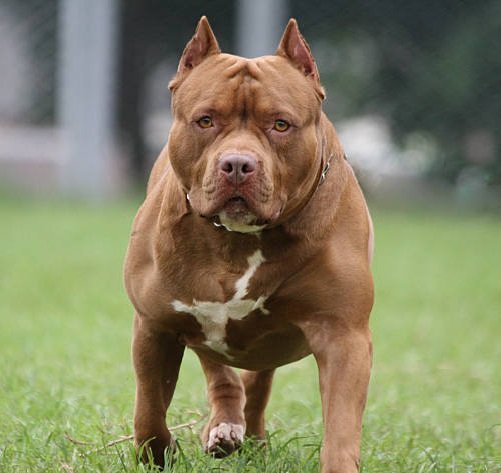The Origin of the Bernese Mountain Dog
The Bernese Mountain Dog Puppy originated in Switzerland and is one of four ancient Swiss mountain dog breeds. Historically used as working dogs, they were employed on farms for herding cattle, pulling carts, and guarding livestock. Their robust build and friendly demeanor make them a perfect companion for families today.
Appearance and Characteristics
A Bernese Mountain Dog puppy is easily recognizable with its tri-colored coat of black, white, and rust. Here are some key features:
- Size: Bernese puppies grow quickly and can reach an adult weight of 70–115 pounds.
- Coat: They have a thick, double coat that is soft and shiny, ideal for colder climates.
- Eyes: Their dark, almond-shaped eyes give them a gentle, expressive look.
- Tail: Long and bushy, always carried low when relaxed.
Their adorable appearance is matched by their even-tempered and affectionate nature, making them a favorite for dog lovers.
Why Choose a Bernese Mountain Dog Puppy?
1. Loyal Companions
A Bernese Mountain Dog puppy grows into a fiercely loyal and loving pet. They are naturally protective, which makes them excellent family dogs.
2. Great with Kids
These puppies are gentle giants. They are patient and caring, making them ideal playmates for children.
3. Adaptability
Although they are large dogs, Bernese Mountain Dog puppies adapt well to various living situations as long as they get enough exercise and attention.
Caring for Your Bernese Mountain Dog Puppy

1. Nutrition
Proper nutrition is critical during a puppy’s growth phase. Here’s what you should know:
- High-quality puppy food: Choose a formula designed for large breeds.
- Portion control: Avoid overfeeding to prevent rapid growth, which can lead to joint problems.
- Supplements: Consult your vet about adding glucosamine for joint health.
2. Grooming
The Bernese Mountain Dog puppy has a double coat that requires regular grooming:
- Brushing: Brush their coat 2–3 times a week to prevent matting.
- Bathing: Only bathe when necessary to avoid stripping their coat of natural oils.
- Nail trimming: Regularly trim their nails to prevent discomfort.
3. Exercise
Although they are calm indoors, Bernese Mountain Dog puppies need regular exercise:
- Daily walks or play sessions
- Access to a yard for running
- Mental stimulation with toys or training
Training Your Bernese Mountain Dog Puppy
1. Start Early
Begin training your Bernese Mountain Dog puppy as soon as they come home. They are intelligent but can be stubborn, so consistency is key.
2. Socialization
Expose your puppy to different environments, people, and other pets early on. This helps prevent shyness or anxiety.
3. Basic Commands
Teach commands like sit, stay, and come. Positive reinforcement methods, like treats and praise, work best.
4. Leash Training
Since they grow into large dogs, it’s important to leash-train your puppy to avoid pulling.
Common Health Concerns in Bernese Mountain Dog Puppies

1. Hip and Elbow Dysplasia
This is common in large breeds. Regular vet check-ups and maintaining a healthy weight can help.
2. Bloat
Bernese Mountain Dogs are prone to gastric issues. Feed smaller meals multiple times a day and avoid vigorous activity after eating.
3. Cancer
Unfortunately, this breed has a higher incidence of cancer. Early detection through routine vet visits is crucial.
4. Joint Issues
Ensure your puppy doesn’t overexert itself during play to protect their developing joints.
Fun Facts About Bernese Mountain Dog Puppies
- Farm Helpers: Historically, Bernese Mountain Dogs were used to pull carts loaded with goods.
- Cold Weather Fans: They thrive in cold climates thanks to their thick coats.
- Gentle Giants: Despite their size, they are incredibly gentle and affectionate.
- Family-Oriented: These dogs form strong bonds with their families and dislike being left alone for long periods.
Frequently Asked Questions (FAQs)
1. How much does a Bernese Mountain Dog puppy cost?
A Bernese Mountain Dog puppy typically costs between $1,000 to $3,000, depending on the breeder and pedigree.
2. How big do Bernese Mountain Dogs get?
Adult Bernese Mountain Dogs can weigh between 70–115 pounds and stand 23–28 inches tall at the shoulder.
3. Are Bernese Mountain Dog puppies good for first-time dog owners?
Yes, their friendly and easygoing nature makes them a great choice for first-time owners, though their size requires some handling confidence.
4. Do Bernese Mountain Dogs shed a lot?
Yes, they shed heavily, especially during seasonal changes. Regular brushing can help manage shedding.
Tips for Raising a Happy Bernese Mountain Dog Puppy
- Provide Early Training: Start with basic commands and socialization from day one.
- Engage Them Mentally: Puzzle toys and obedience training keep their minds sharp.
- Create a Routine: Bernese Mountain Dogs thrive on consistency.
- Monitor Their Health: Regular vet visits ensure they stay healthy.
Final Thoughts
Bringing a Bernese Mountain Dog puppy into your life is a rewarding experience. Their loyal, loving, and playful nature makes them an exceptional addition to any family. By providing proper care, training, and love, your puppy will grow into a cherished companion for years to come.





